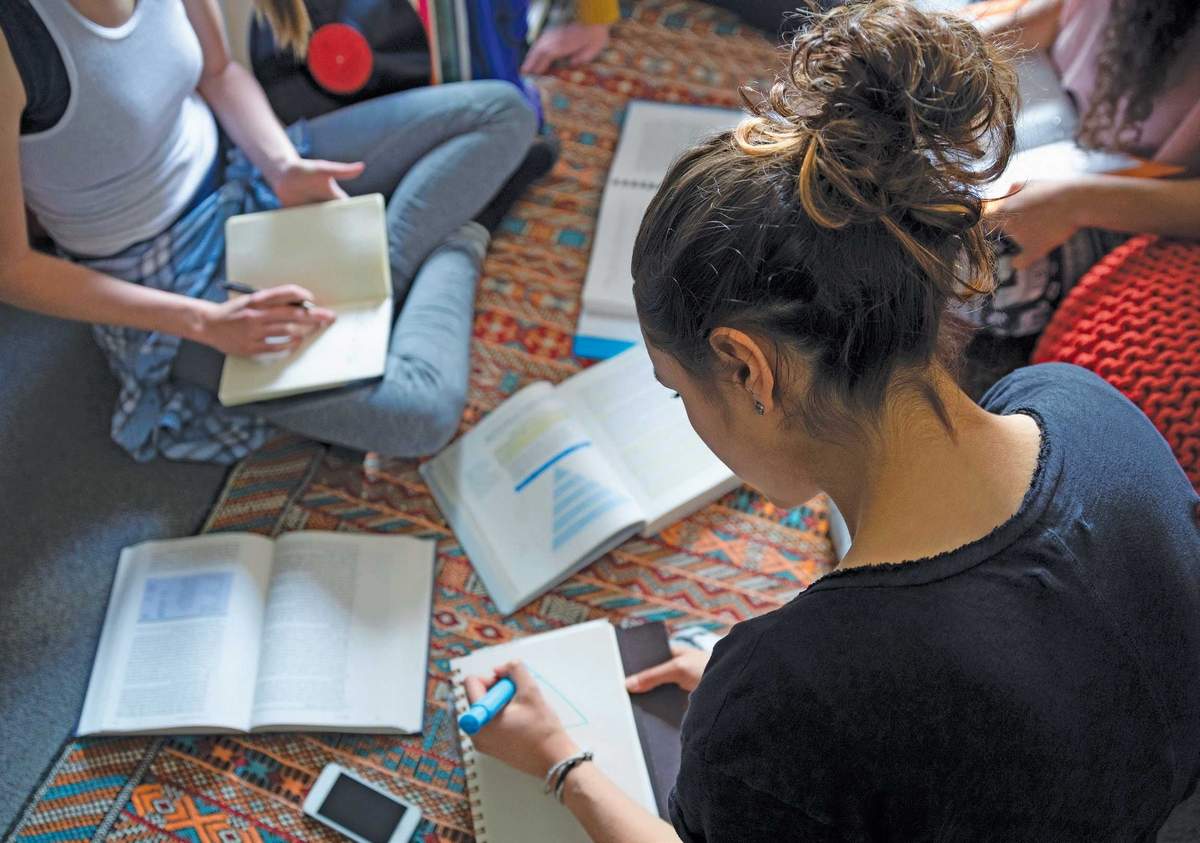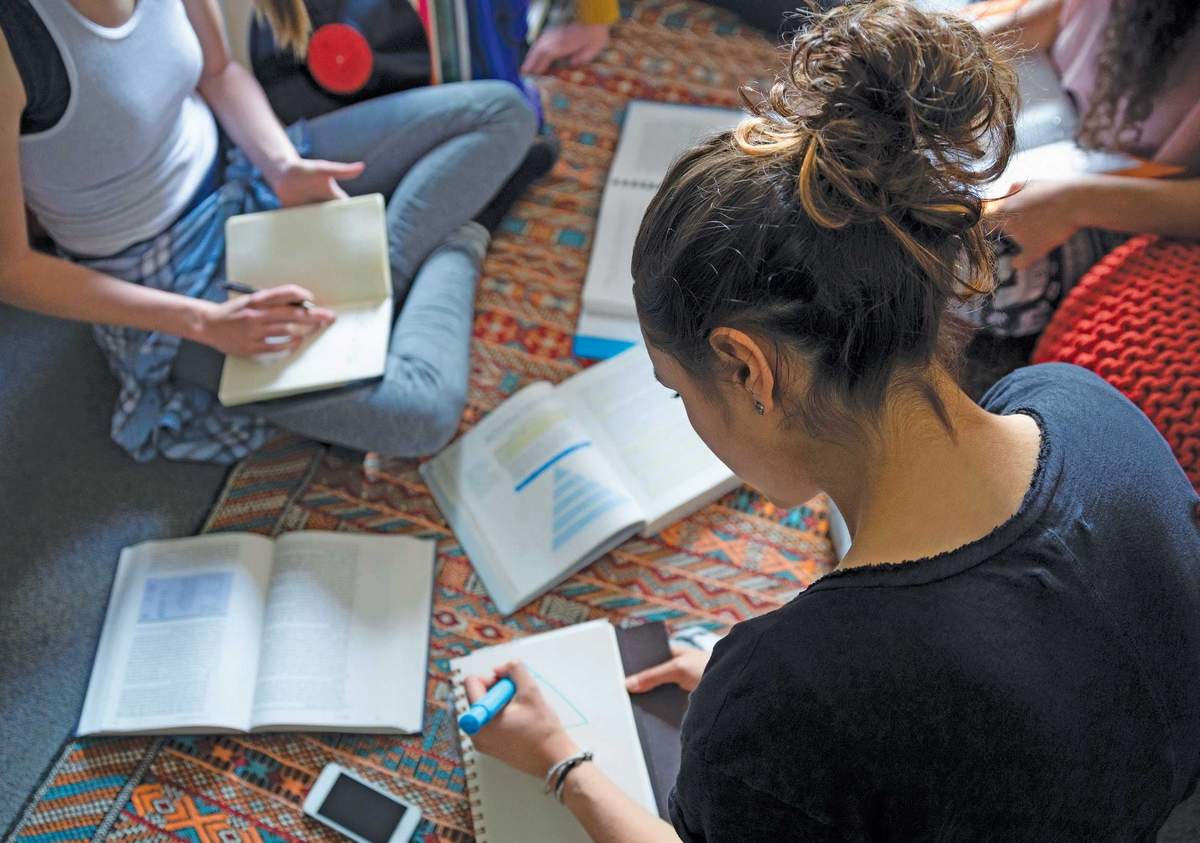
There are thousands of universities to choose from around the world. Some higher education institutions offer undergraduate programmes, others provide an Ivy League education and several are best suited for just a master’s degree.
How do you ensure that a student is picking a university that is the best fit for them?
Christophe Savard, VP Career and Future Employment Architect at Gems Education, said that it’s not just about choosing a university, it’s about “choosing a lifestyle” and committing to a four year or longer relationship.
“It’s important that all factors outside the university support academic commitment. Ultimately, this can have a significant impact on retention and result in a potential drop from their programme and/or institution which in most cases could have been avoided. If a student is struggling academically or personally, it is important that they utilise the supporting departments of the institution as they are there to help,” Savard said.
Penny Chidgey, from the Gems Wellington International School, said a student should ensure he or she is choosing a university with an academic programme that corresponds with their career and academic goals.
She said students should research the different kinds of undergraduate programmes and major they are interested in.
“If they want undergraduate business management, then an Ivy League liberal arts college like Stanford or Harvard are not a ‘best fit’ because their business programmes are for MBA, not undergraduates. Researching undergraduate programmes and academic majors is the engine that drives a student’s university choice,” Chidgey said.
“A university campus must be chosen by the family to ensure a balanced quality of life for the students’ home-away-from-home experience, safety and family comfort levels allowing a student independence without fear during their university experience. When academic and personal goals are balanced and considered together, the ‘best fit’ university becomes clear for any student – so that they can be a success in their career beyond the university,” added Chidgey.
Dr Kierstan Connors, who works at Gems Education College and Career Counselling, said many universities offer additional support in case a student decides to change his or major and opts for another programme within the institution.
She said that in the US almost 80 per cent of freshman change their majors stated on their applications, and, according to the British Council, over 65 per cent of university students that enter university this fall will eventually enter careers and industries that don’t exist today.
“Universities know that some students change their goals and pathways once they enter university, and have resources, mentors and advisors to help with these changes. So, change is good, as long as the university offers flexible resources, support systems, and additional course options for students that are not suited for their first choice academic programme. Thus, it’s best to apply to a university and course with a ‘best fit’ back up plan: start with a major of studies academic focus, and add a minor academic focus so that even with dramatic change in majors, at least a suitable back up plan is available at the same university – even once the full year’s tuition is paid,” she said.
“If all else fails, a transfer to a different university is possible but it takes a lot of work for another year-long round of applications. If a student corrects their university experience and eventually graduates with a degree they love and are proud of, then their career path will not be significantly derailed. They are teenagers and have decades of future career paths, changes, and life to experience – with a small start in university.”
Several UAE students are ensuring they build a strong high school resume and do thorough research to get accepted into their dream university.
Divyalakshmi VP, a Grade 9 student in Dubai, said she wants to be a student at the University of Cambridge in England.
She is already preparing for the future and getting ready to take the required assessment tests, with hope that she’ll impress the admissions department at the university.
“To ensure that I fulfil my aim, I have brainstormed a few obvious yet essential methodologies. Having a high academic record during all the four years of high school is crucially vital. Excelling in the challenging aptitude examinations such as SAT, ACT, PSAT, and CAT also boosts my profile and potential.
“Becoming involved in volunteering programmes, social causes, and awareness campaigns enumerate my personality. Apart from this, inculcating other skills and hobbies – for instance, learning a sport or an instrument – adds on to my capacity and showcases my interests,” VP said.
Another Grade 9 student in Dubai, Sravya Nagalakunta, said helping her sister with her university’s application has helped her understand the process.
“Education plays a vital role in shaping one’s life. Therefore, higher education determines the future. Tagging along with my sister’s admission process helped me understand its structure. You have to put yourself on the college applications. Imitating someone you are not may have its own consequences further down the road. There is nothing wrong with being yourself. Sometimes it might just be the best person. There are counselors out there who can help but the final submission lies with yourself,” Nagalakunta said.
A Grade 8 student, Dhanvi Sayani, said: “To ensure that you get into the university you wish to enrol you need to do hard work, hard work is the key to success. You should fix your eyes on your goal – the university you wish – keeping that in mind when you prepare for your requirements.”
(James McDonald Vice-President US and IB Curriculum Schools Gems Education)
Do you ever wonder what people 100 years from now will say about us living today? I am not a futurist, but I am sure there will be plenty of changes to our world by 2118, just as much has changed between 1918 and today.
Along these lines, and in recognition of the pace of change nowadays, for the past few decades, educators have been moving towards ‘ 21st-century learning’ which is all about developing dispositions and skills in areas like creativity, innovation, communication, collaboration, critical thinking, and digital literacies.
Many modern educators believe our children require an education that goes much further than what can be delivered through traditional approaches to teaching and learning which is designed to be measured through standardised assessments.
I think many parents intuitively know this to be true. I would encourage parents to consider how their child is learning and to question whether their planned course of study reflects their future needs, especially that of their higher education.
GOT NEWS? click here
Google News, Bing News, Yahoo News, 200+ publications
I don’t think it would be outlandish to suggest that future generations are going to wonder why our educational systems have continued to focus on the less essential things for so long. Below is some reasoning behind these thoughts:
Today, it is rare for anyone to be hired or promoted at work based solely on a standardised test score, so why is it that standardised test scores are the key performance measurement for so many kids’? There are other factors to assess how well a child is performing in school, and these are more strongly correlated with future career success. These might include assessing anything from good teamwork and effective communication skills to creative problem-solving capabilities – none of which can be properly measured by a standardised academic exam.
Rise of artificial intelligence (AI)
AI is replacing jobs in some sectors and this pace of change is set to continue as industries face a changing demand for human capital. It won’t be long before computers will be able to outperform most students on many standardised exams. If our educational systems continue to focus on learning measured through standardised testing, then these are probably just preparing students to be replaced by computers. We need to focus more on complex cognitive abilities, such as critical thinking and creativity – human abilities AI has not yet begun to challenge.
Test scores vs entrepreneurial capability
Another way of describing 21st-century learning could be through the lens of entrepreneurship. Many of the terms we would use to describe entrepreneurial thinking – which can be applied in almost any real-world setting – describe the skills that we aim to harbour in our 21st-century learning environments.
>Research different options – make sure there is a ‘good fit’ between the student and the programme. Reputation should never be the only consideration.
>Learn about the admission requirements of different universities as early as possible so your child’s programme of study can be aligned thoughtfully with these requirements.
>Remember the world of work is changing – aspire for a 21st-century university education.
>Top global universities are increasingly moving toward more holistic criteria for admission, and test scores are only one consideration. Plan accordingly.
In the UAE, many schools have either announced their examination results or will soon.
This is a time to celebrate the achievements and hard work of our students and to thank the amazing teachers who have helped our students.
But no student is a number and there is always much more to each individual that can be reflected in a standardised test score.
Let’s hope it doesn’t take a 100 years for us to get our educational systems right.
If we want to make sure that we get into the university of our wish, the first and the best step is we should work hard and score good, especially in the four crucial and the most important classes. If you score well it’ll be easier for you to manage to get into the university you wish. We can make sure to proofread and get feedbacks which would enhance our reading skills and speaking skills. One can take academic rigourous classes which would help to increase your knowledge.
(Salika S.T, The Central School, Dubai)
Applying to college can be both exciting and stressful. With so many colleges to consider and important deadlines to meet, daunting might be an understatement for the work ahead. Not to mention, the competition is fierce among the many highly qualified applicants applying to elite schools. Apply to as many universities as possible – in case you don’t get your picked university, you will gain some other university but if you won’t apply you won’t get any university.
(Karan Sinnamari, Our Own English High School, Fujairah)
Since competitions for applying to schools, jobs, and universities are progressing day by day, students find it extremely difficult to get themselves enrolled in the high standard universities they wish to attend. Most of the students are unable to attend the universities they wish to attend. This is either because of inadequate financial standards or weak grades. Also, there still exist students who are unable to attend universities because of their lack of awareness about the society.
(Arun Sinnamari, Our Own English High School, Fujairah )
Moulding years
After school is when an individual reaches the crossroads of his or her life. Choosing the right course and the right university gains importance here. The purpose of education is not just a degree, but developing the right attitude while holding on to the right values. The aim is wholesome development.







